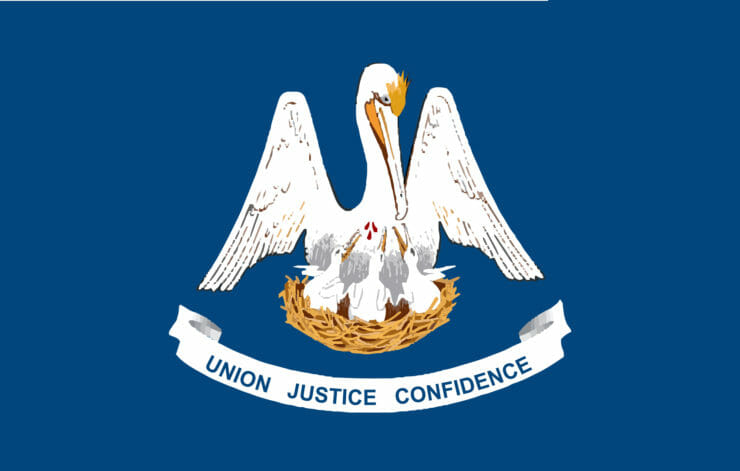
The Agriculture Improvement Act of 2018 (2018 Farm Bill) legalized hemp by removing the crop and its derivatives from the definition of marijuana under the Controlled Substances Act (CSA) and by providing a detailed framework for the cultivation of hemp. The 2018 Farm Bill gives the US Department of Agriculture (USDA) regulatory authority over hemp cultivation at the federal level. In turn, states have the option to maintain primary regulatory authority over the crop cultivated within their borders by submitting a plan to the USDA.
This federal and state interplay has resulted in many legislative and regulatory changes at the state level. Indeed, most states have introduced (and adopted) bills that would authorize the commercial production of hemp within their borders. A smaller but growing number of states also regulate the sale of products derived from hemp.
In light of the rapidly evolving legislative changes, we are also presenting a 50-state series analyzing how each jurisdiction treats hemp-derived cannabidiol (Hemp CBD). Today we turn to Louisiana.
Louisiana lawmakers recently adopted House Bill 138 (HB 138) and House Bill 491 (HB 491) in light of the 2018 Farm Bill. HB 138 amends Louisiana’s definition of marijuana to exclude “industrial hemp that is in the possession, custody, or control of a person who holds a license issued by the Louisiana Department of Agriculture and Forestry, or is cultivated and processed in accordance with the U.S. Agriculture Improvement Act of 2018.” In turn, HB 138 defines industrial hemp as “the plant Cannabis sativa and any part of that plant, including the seeds thereof and all derivatives, extracts, cannabinoids, isomers, acids and salts of isomers, whether growing or not, with a delta-9-tetrahydrocannabinol concentration of not more than 0.3 percent on a dry weight basis and cultivated and processed in accordance with the U.S. Agriculture Improvement Act of 2018, or the plan submitted by the Louisiana Department of Agriculture and Forestry that is in compliance with the U.S. Department of Agriculture rules.” In Louisiana, hemp is only legal if it meets the THC concentration outlined in the 2018 Farm Bill and also was cultivated and processed legally, either in Lousiana or elsewhere.
HB 491 lays out the details of Louisiana’s hemp cultivation plan. The Louisiana Department of Agriculture and Forestry (LDAF) oversees the program. LDAF issues the following licenses:
- Grower License – authorizes the licensee to cultivate, handle and transport industrial hemp;
- Processor License – authorizes the licensee to handle, process and transport industrial hemp;
- Seed Producer – authorizes the licensee to produce, transport and sell industrial hemp seed; and
- Contract Carrier – authorizes the licensee to transport industrial hemp (required when the transporter is not the licensed grower or processor of the plant material).
LDAF has not yet begun issuing these licenses as the USDA has yet to approve any state plan, including Louisiana’s. With regards to hemp cultivation, HB 491 tracks the farm bill closely. It is worth mentioning that any person transporting or delivering hemp in Louisiana must carry a dated invoice, bill of lading, or manifest which shall include the seller and purchaser’s name and address, the specific origin and destination, and the quantity of hemp. That’s important to note for anyone traveling through Louisiana with hemp.
HB 491 also covers Hemp-CBD products. No person may process or sell (1) any part of hemp for inhalation, (2) any alcoholic beverage containing CBD, or (3) any food product or beverage containing CBD unless the FDA approves CBD as a food additive. All Hemp-CBD products must be labeled and registered in accordance with Louisiana’s Food, Drug and Cosmetic Law (R.S. 40:601 et seq.). Hemp-CBD may not be marketed as a dietary supplement. In addition, Hemp-CBD labels must meet the following criteria and be approved by the Louisiana Department of Health:
- Contain the following language: “This product has not been evaluated by the Food and Drug Administration and is not intended to diagnose, treat, cure, or prevent any disease.”
- Contain no medical claim
- Have a scannable bar code, QR code, or web address linked to a Certificate of Analysis (COA)
COAs for Hemp-CBD products in Louisiana must contain the following:
- The batch identification number, date received, date of completion, and the method of analysis for each test conducted.
- Test results identifying the cannabinoid profile by percentage of dry weight, solvents, pesticides, microbials, and heavy metals.
Retailer sellers of Hemp-CBD must (1) register with the Office of Alcohol Tobacco Control (OATC) and (2) meet the above specific labeling and testing requirements. Hemp-CBD may only be sold by businesses holding a CBD Dealer Permit from OATC, which requires a location in Louisiana where products are stored and/or sold. CBD Dealer Permit applicants must also have been residents of the state of Louisiana for two years prior to applying. These provisions make the online sale of Hemp-CBD in Louisiana impractical in most cases.
Stay tuned to the Canna Law Blog for developments on hemp and Hemp CBD in Louisana and other states across the country. For previous coverage in this series, check out the links below:























